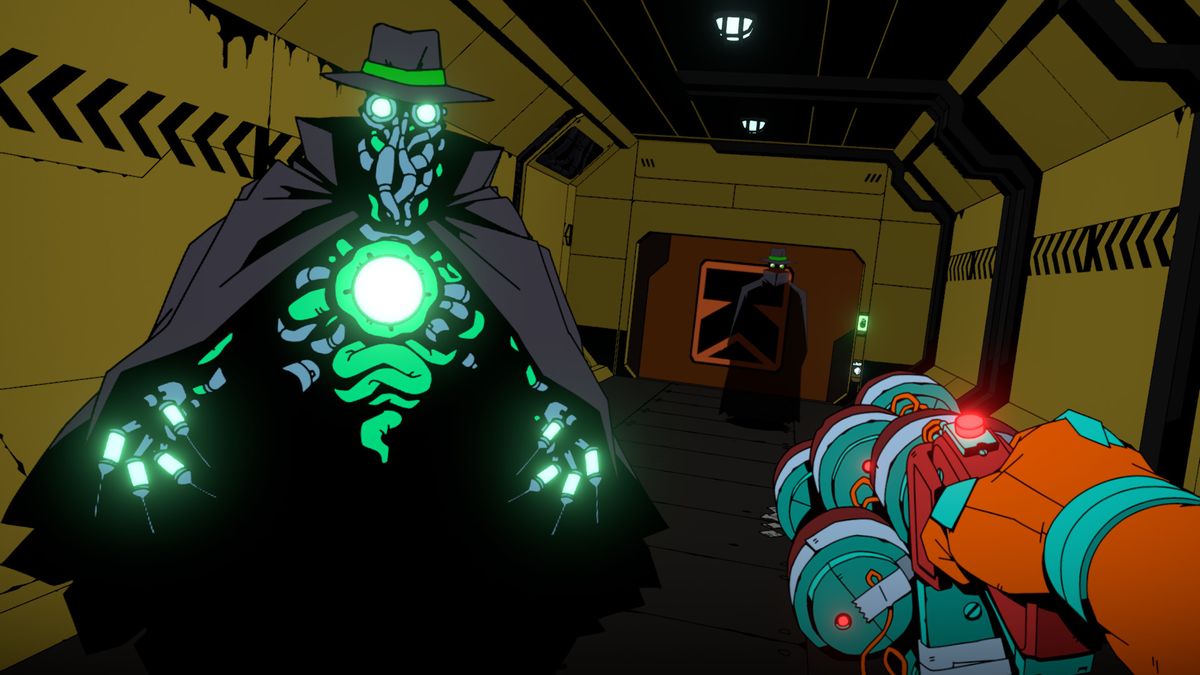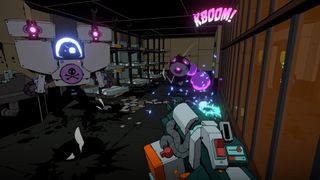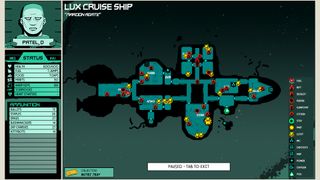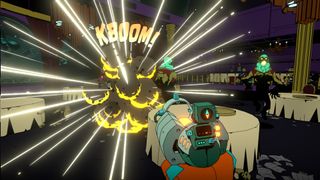It's been almost exactly a decade since Ken Levine announced the end of Irrational Games, less than a year after the release of BioShock: Infinite. Due to the fallout, only a handful of employees remained, who continued to work quietly until the studio finally received a new name a few years later.
“While I am deeply proud of what we have achieved together, my passion has evolved into creating a game that is different from what we have made before,” he wrote in 2014. “To the one that lies ahead To overcome the challenge, I need to refocus.” I will transfer my energy to a smaller team with a flatter structure and a more direct relationship with the players. In many ways it will be a return to our beginnings: a small team developing games for the core audience of gamers.”
You can debate the appropriateness of talking about your own creative needs while turning away dozens of employees – the same employees who endured BioShock Infinite's strenuous and demanding development. By the end of the following year, Irrational owner 2K had closed all three key studios behind the BioShock series. Perhaps by the time Levine made his statement, the publisher had already decided that profit margins on auteur blockbusters were too small to support a standing team of hundreds, on projects that took half a decade or more to complete.
Whatever the case, Levine stayed true to his word and teamed up with a carefully selected group of Irrational veterans to work on “narrative games for the core player with high replayability.” The month after the layoffs, he gave a GDC talk on “narrative Legos,” exploring ways to break stories into tiny pieces and present them in different combinations depending on the player's choice. For the most part, however, he and the other survivors on Irrational's lifeboat – now called Ghost Story Games – have remained silent. Until the reveal of their secret project Judas at the Game Awards 2022.
Judas looks both remarkable – its kaleidoscopic scenery was generously chewed by the cast – and remarkably like a BioShock game. His trailers are characterized by their surrealist spectacle, a mix of gunfights and fireballs and encounters with towers against the backdrop of early 20th century architecture. There's a feeling of disgust directed at humanity's worst impulses – and there are hints of that Lego too. With its allusions to temporary alliances between a cast of colorful antagonists and the ultimate decision to “fix what you broke or let it burn,” Judas could provide exactly the mercurial narrative that Levine first so long ago introduced it once.
Still, I can't help but think he's beaten. Since that GDC conversation, roguelikes have become predominant, and it's now common for developers to chop up bits of story and mix them into different arrangements across multiple playthroughs. In fact, Blue Manchu's Void Bastards is one such game – in many ways the conceptual twin of Judas.
I can't help but think he's beaten.
Irrational wasn't founded by Ken Levine alone – as the man himself emphasized in the company's closing statement. One of the co-founders was Rob Fermier, an MIT genius whose professional highlights include Age of Mythology. And the other was Jon Chey, who had been a programmer on Thief: The Dark Project. As a trio, they led Irrational to cult success with System Shock 2. Chey then moved back to Canberra, where he set up the Australian division of the studio – the two Irrationals worked in lockstep for many years.
Like Levine, Chey eventually became annoyed with the scale of development at Irrational and decided to work on smaller projects instead. Unlike Levine, he left Take-Two to start his own indie company, Blue Manchu. Nevertheless, both ended up being reminiscent of the setting of System Shock 2.
In Void Bastards, like in Judas, you are tasked with improving your situation on a dying space station. It's an excuse to revisit the same problem-solving loop that Irrational first developed in 1999. While Thief taught avoidance through stealth, System Shock 2 leaned toward survival horror. Eventually, you knew you would have to face the lanky mutants and toxic dangers that hindered your progress. Given the limited supply of ammunition and the risk of weapons breaking apart, planning and efficiency were required to get beyond the MedSci deck to freedom.
Void Bastards serves up similar problems in bite-sized chunks. As a prisoner whose transport has broken down in a hostile nebula, you pilot a tiny escape pod to nearby wreckage, searching for the parts you need to repair the mothership and the weapons that will help you achieve that goal. When you board a haunted spaceship, your goal may be to search every drawer in search of a copy of Surgery 4 Dummies so you can upgrade your poison darts for the next mission. But it's never been that easy. A nearby camera threatens to wake the dreaded SecBot, your oxygen supply is already down to five minutes, and a mutated Screw is stomping through the security room like a Big Daddy in boots.
Added to these problems are a number of overarching strategic considerations. As you fly from ship to ship, you'll face long-term threats like starvation, fuel shortages, or the Void Whales, which could devour your ship if you don't stock up on torpedoes. It's survival horror on a grand scale – a resource management game where it's a matter of life and death.
Horror is often just a stone's throw away from comedy. And as the name suggests, Void Bastards embraces this fact. An example of the diverse enemy types are the tourists – sentient blobs who stroll through spaceships in tacky hats and complain about lost luggage. If you get too close, they explode with a scream of “Buffet?!”
The story is a bureaucratic British farce penned by Scottish author and former PC Gamer employee Cara Ellison. In the final sequence, you must prevent the space station's self-destruct sequence from activating – by providing your personal computer with a certificate proving an address change. It's like dealing with your bank or the interactive The Hitchhiker's Guide to the Galaxy.
This kind of knowing absurdity may be different from Judas, but it was just as deep in Irrational's DNA as System Shock. Just look at Freedom Force, the tactics game that takes on the most over-the-top superheroes and the anti-communist sentiment of Silver Age comics. “Void Bastards” is also designed like a classic graphic novel – with sound effects transferred into the text, such as the squeaking of tourists.
Then there's the spirit of Irrational's SWAT 4, which was all about clearing small maps room by room. One of his most important tools was the wedge, used to cordon off areas and prevent armed suspects from entering your flanks.
While Judas aims for a high budget, Void Bastards' budget is low.
The Wedge lives on in the lockable doors of Void Bastards. There's a thrilling and satisfying delay between pressing the lock button and allowing the ship to catch up – a few seconds of beeps and flashing lights in which you can dart through the portal yourself or simply pray that a pursuing enemy doesn't catch up. This is an important method for clamping the screws mentioned above. Or better yet, to trap them with a clusterflack grenade before peering through the window like a sicko as the bombs bounce monstrously off every surface.
I hope that Ghost Story Games steals from Irrational's past with the same enthusiasm that Void Bastards did – recalling not just BioShock, but also the quirkier, lesser-known games that came before it. Where Judas went for a high budget, Void Bastards went low – showing us an alternative vision that achieved many of the same goals. With a bit of luck, there'll still be plenty of Lego in the bucket for Levine to play with.







